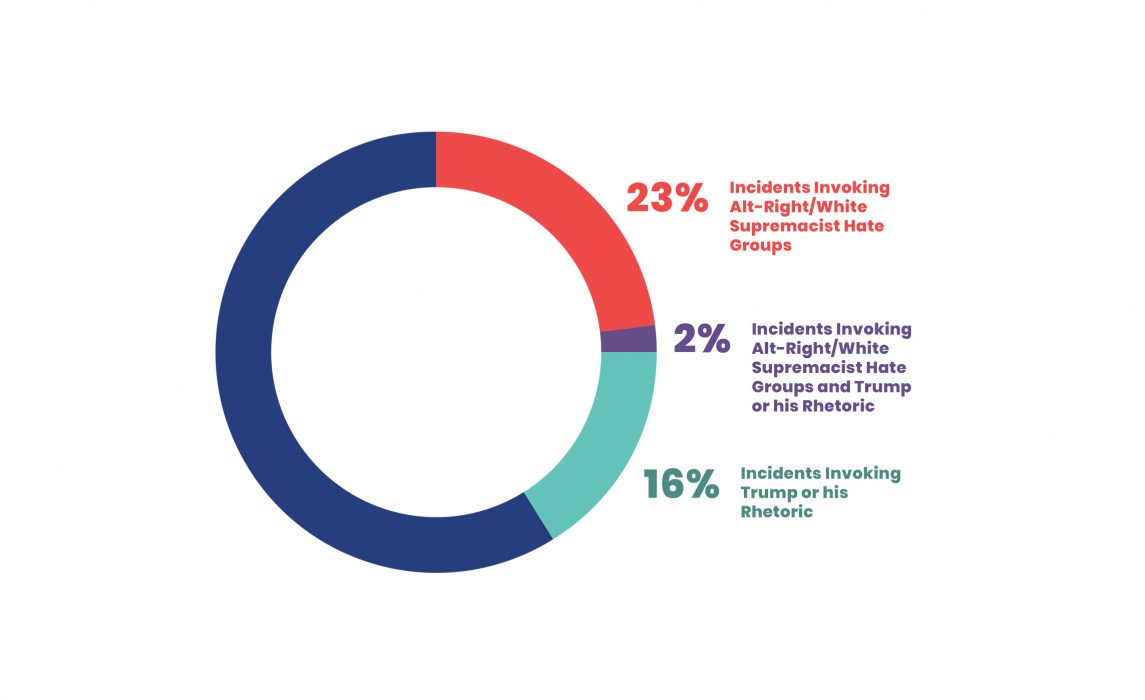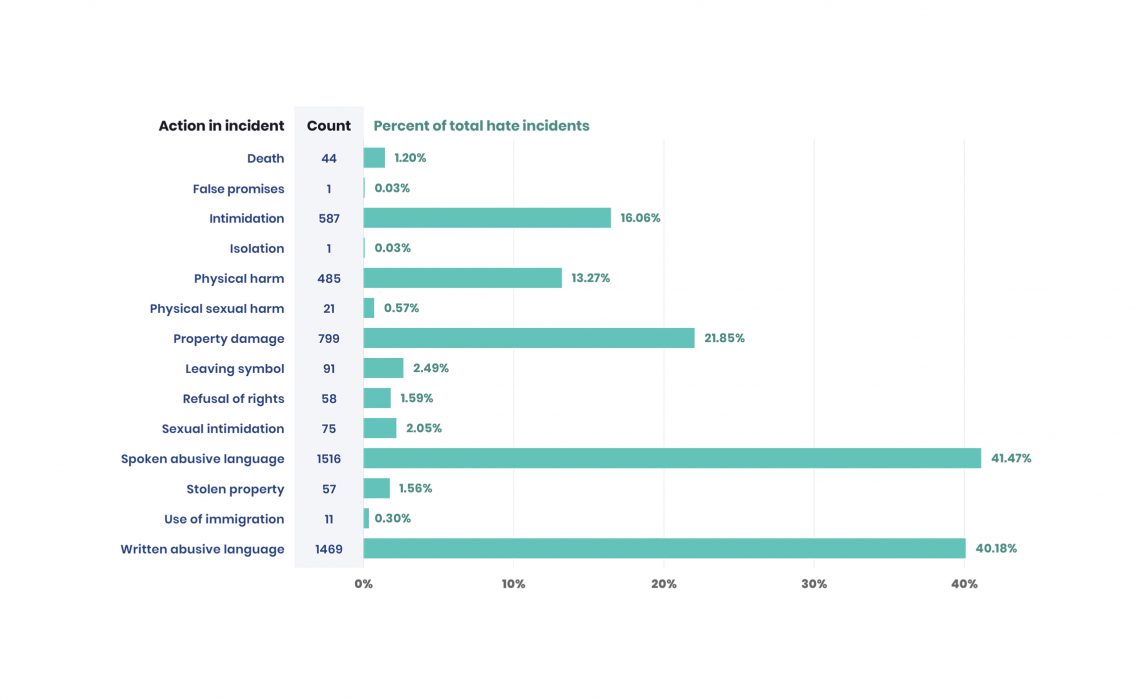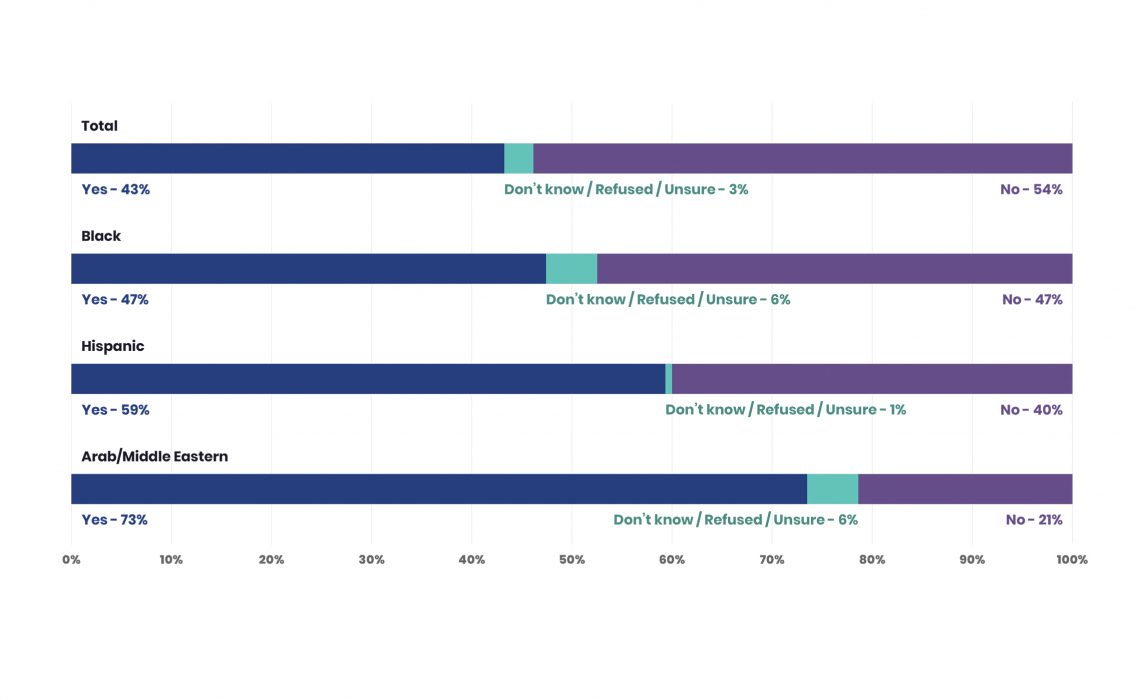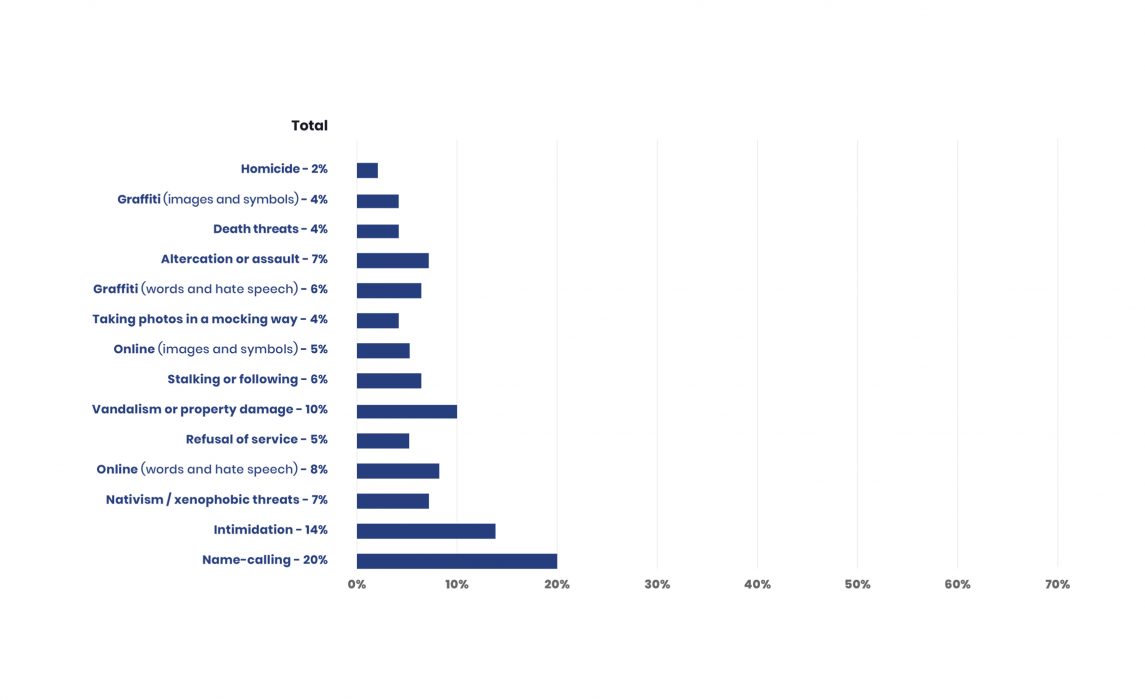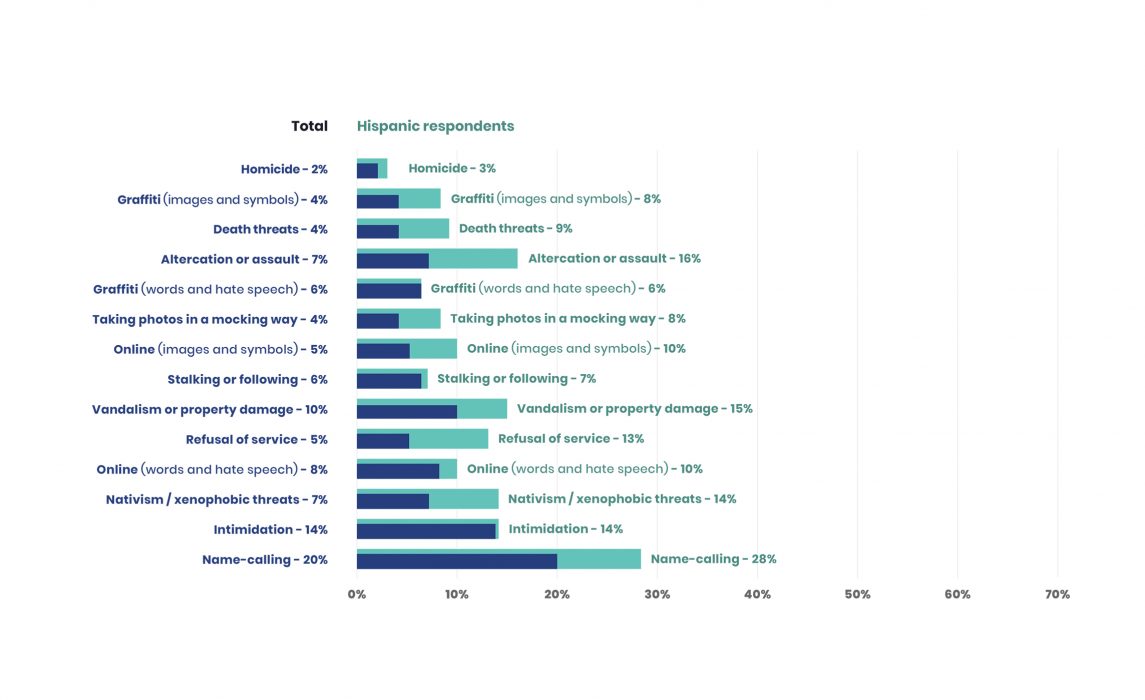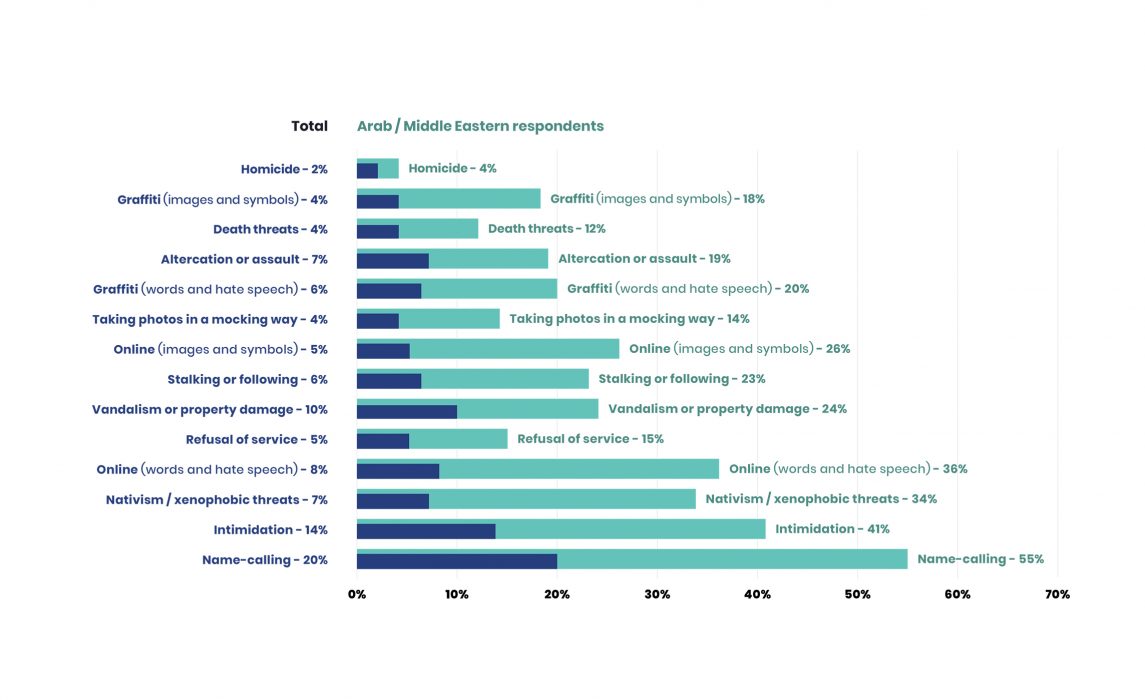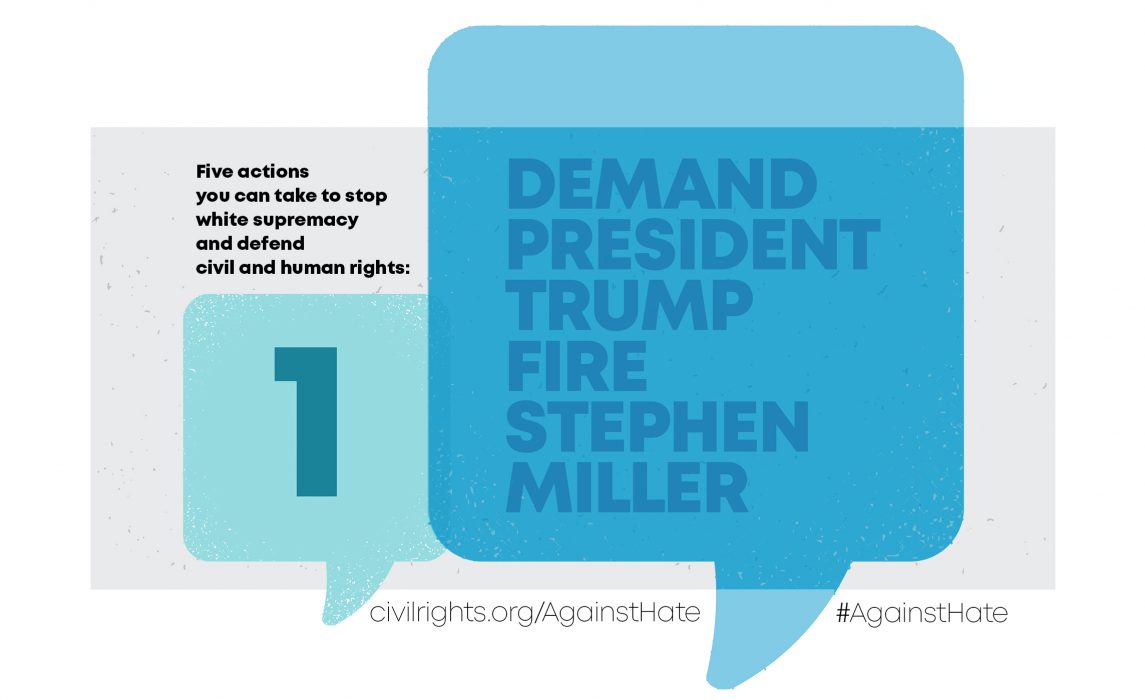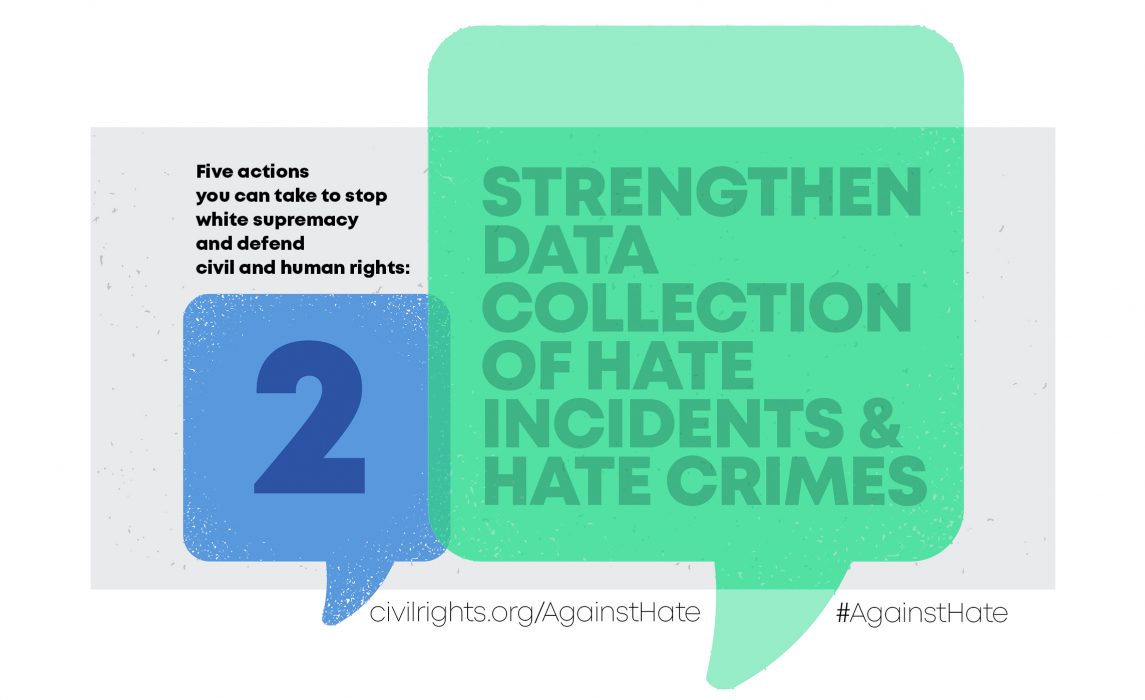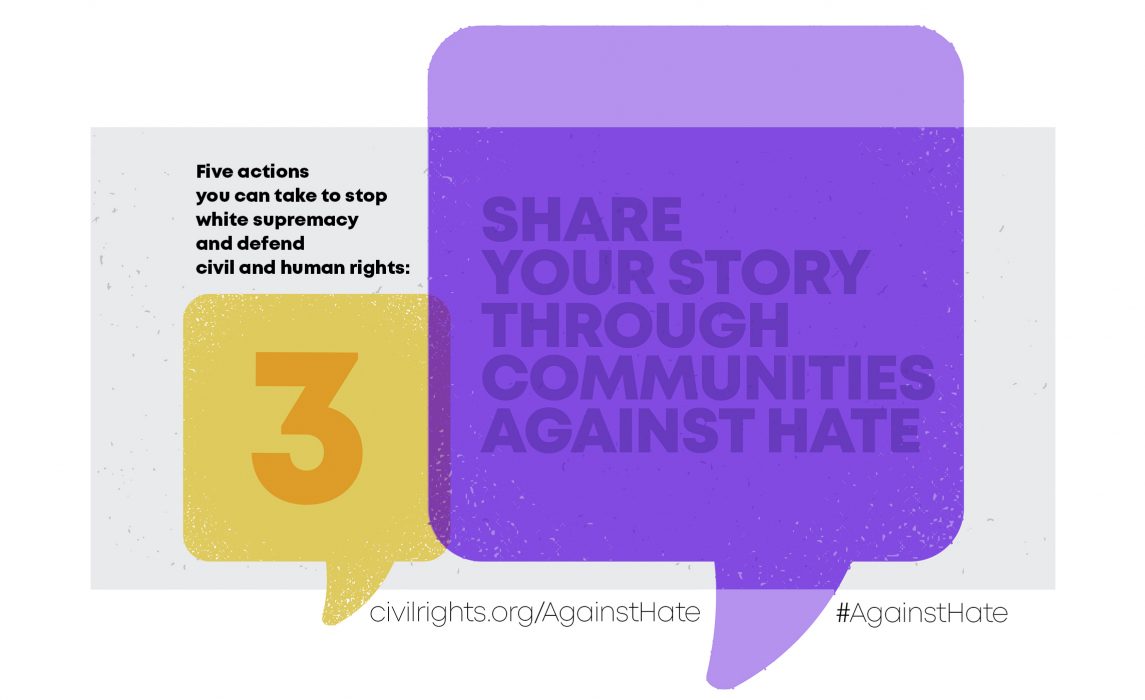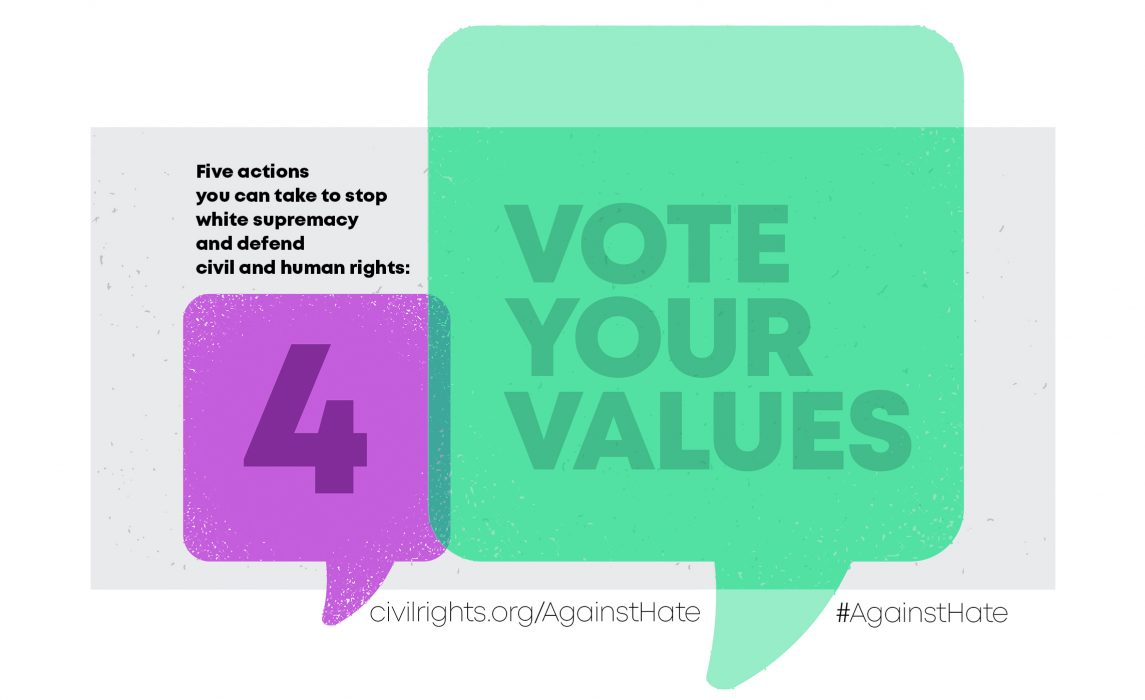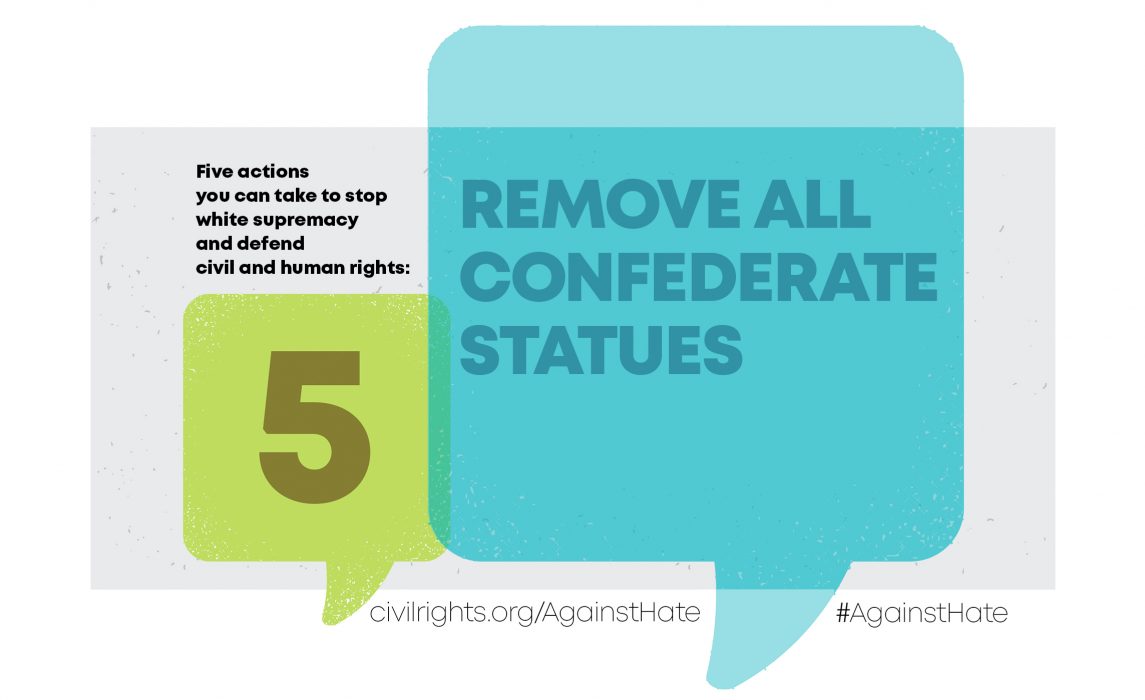Fighting Hate & Bias
Advocating for a safe and inclusive America by documenting hate, building community, and demanding collective action
Civil rights are fundamental to a fair and just society. We are working in coalition to build a regulatory regime that includes civil rights guardrails, transparency and accountability to ensure technology is innovative rather than harmful.
The Center for Civil Rights and Technology is a first-of-its-kind research and advocacy hub, bringing together civil society, policymakers, and the tech sector to advance understanding of opportunities and challenges from the proliferation of AI and emerging technologies. Together, these diverse groups are working relentlessly to ensure that when AI policy is formulated, they center civil rights as a core issue.
Artificial Intelligence
Everyone deserves fairness and equity. As artificial intelligence (AI) use grows and provides opportunities for innovation and productivity, it is essential that the federal government protects everyone from the potential harms of AI and ensures we have equitable access for all communities to its benefits. Civil rights protections do not fall away when you interact with an automated system. AI systems that are biased do not provide full information or protections for marginalized communities. Therefore, the current decisions made using those systems cannot be trusted. We are advocating across the federal government and White House administration to ensure that AI legislation and regulatory measures center on civil rights, and that AI systems are equitable and do not discriminate.
2023 Letter to the White House on Forthcoming AI Executive Order ›
Lifeline Program
Voice and broadband services are essential for full participation in today’s economy. Unfortunately, our nation’s most marginalized communities are often on the wrong side of the digital divide. The Federal Communications Commission’s Lifeline program closes the affordability gap that keeps communities disconnected from 21st century communications services. Millions of Americans rely on the Lifeline program for access to affordable voice and broadband services — and that is why we work to ensure the program remains strong.
Lifeline Modernization Principles ›
Lifeline Civil Rights Comments ›
Close the Digital Divide, Protect the Lifeline Program ›
Comments regarding FCC Proposals to Dismantle the Lifeline Program ›
Broadband Infrastructure
The transition from copper circuit-switched wireline networks to fiber, co-axial cable, and wireless all-Internet Protocol (IP) networks is an important evolution of our communications infrastructure that impacts all people in America. Upgrading technologies can offer great benefits for economic growth and competitiveness, flexibility, job creation, consumer service, and cost. But challenges may arise as providers upgrade the nation’s infrastructure.
Media Diversity
Civil rights protections rely in great measure on an accurate, independent, and diverse media. The Federal Communications Commission must find creative and practical ways to address inequities in media ownership and enhance representation and inclusion within these industries. We advocate for the FCC to consider the impact of media concentration on minority and women’s ownership, improve its data collection on the demographics of media ownership, and meet the informational and communications needs of all people.
Hold FCC Accountable for Diverse and Independent Media ›
Prison Phone Rates
For many people who are incarcerated, phone calls are the most reliable and practical method of staying in contact with their families and communities. But too often prison systems and phone companies take advantage of this dependence and charge outrageously high rates for these phone calls. Current policy is not just inhumane — it reduces the chances that people will successfully return home from prison. We support efforts to eliminate predatory prison phone rates in America.
Latest News
The Center for Civil Rights and Technology Announces New Advisory Council
WASHINGTON — Today the Center for Civil and Rights Technology, an advocacy hub of The Leadership Conference Education Fund and The Leadership Conference on Civil and Human Rights, announced the creation of an advisory council made up of civil society leaders, as well as academics, who have published and spoken about critical issues at the intersection of civil rights and technology policy.
Acts of hate touch every community and threaten to undermine the most basic tenets of our democracy. And hate is on the rise. New research found that hate crimes reached their highest number in a decade after increasing for four straight years.
But the data understate the true volume of violence against a diverse set of communities impacted directly by hate. Nearly 90 percent of the nation’s law enforcement agencies do not submit hate crimes to the FBI. Additionally, we know that victims and survivors may be fearful of authorities and thus, not report the crimes to law enforcement. That means our understanding of the magnitude and nature of the crisis is dangerously limited — even as the crisis worsens.
To take on this problematic gap in data, The Leadership Conference Education Fund launched Communities Against Hate, in partnership with the Lawyers’ Committee for Civil Rights Under Law and a diverse array of organizations to document stories and respond to incidents of violence, threats, and property damage motivated by hate in America. Communities Against Hate provides a safe place for survivors and witnesses to share stories of hate incidents through an online database and telephone hotline.
As the Trump administration fans the flames of nationalism and prejudice through rhetoric and alarming policies, we will not lose hope. We will continue working with communities impacted by hate to fight back and build a safe, diverse, and inclusive America.
Get Involved
Together, we have the power to confront the forces of hate, celebrate the dignity of every person, and move our nation toward its highest ideals of fairness and inclusion. Learn more about our campaigns and projects to fight hate and bigotry.
What Is the State of Hate?
Our report, Hate Magnified: Communities in Crisis, documents where hate incidents occur, which communities are most likely to experience hate incidents, and what form those incidents most often take. The report findings underscore the need for better data collection, comprehensive policy reform, and widespread support for combating hate incidents.
Alarmingly, our data show that nearly 40 percent of those perpetrating hate incidents invoked the name of an alt-right hate group, President Trump, or Trump-related rhetoric.
Data excerpts from the report:
Hate Crimes Task Force
Our task force is comprised of coalition members who have expertise in hate crimes and defending civil and human rights. Together, we developed a comprehensive list of priority legislative initiatives that represent a path forward to ending hate and promoting unified action, reconciliation, and national healing. Our country’s leadership must honor equal protection for all people, view our diversity as a strength, and strive to be a country where all people can safely and freely live, work, and participate in their communities.
Latest News
The Leadership Conference Calls for Hate Crimes Investigation, Condemns Hate and Political Violence
WASHINGTON – Maya Wiley, president and CEO of The Leadership Conference on Civil and Human Rights, released the following statement on the attack on protestors at Columbia University:
Contact Us
Learn more about The Education Fund’s initiative, Communities Against Hate; share a story about your experience with hate; or get involved by contacting Anjali Thakur-Mittal, director of Communities Against Hate.
